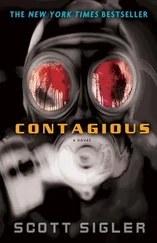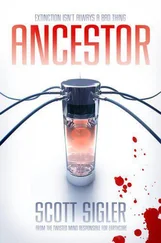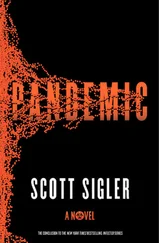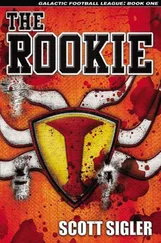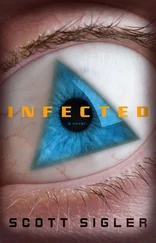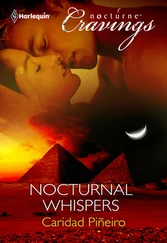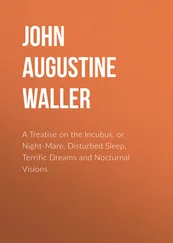“Pretty much the same thing you did, Father.”
“Whatever a man sows, this he will also reap,” Esteban said. “Hell has a special place for people like you. Leave, now .”
Sadness filled Paul’s eyes. Desperation, despair — perhaps the final understanding that this part of his life was over . Paul looked beyond Esteban, through the door to the church interior. The look of sadness changed to one of longing. Paul had spent many years in this very building.
Those days were gone forever.
Paul turned and walked down the church’s wide steps. Esteban watched him reach the sidewalk of Gough Street, then cross and continue down O’Farrell.
Esteban shut the door.

Paul Maloney hunched his shoulders high, tried to burrow his ears into his coat. He needed a hat. So cold out at night. Wind drove the fog, a fog thick enough that you could see wisps of it at eye level. He walked down O’Farrell Street, home to strip clubs, drug dealers and whores, an asphalt swath of sin and degradation. Part of him knew he belonged here. Another part, an older part, wanted to scream and yell, tell all these sinners where they would go unless they took Jesus Christ as their Lord and Savior.
The gall of Father Esteban. Hell has a special place? Maybe for Esteban, maybe for men like him who purported to preach the Word when they didn’t even understand it. God loved Paul Maloney. God loved everyone. Someday, Paul would stand by his side — it would be Esteban who would feel the fires.
Esteban, and the others who had kicked Paul out of the only life he’d ever known.
Paul turned left on Jones Street. Where would he go? He had a constant, churning need for human contact that continued to surprise him. Not the type of contact that had changed his life, just the normal act of a kind word, a conversation. A connection . He’d spent so many years in the church, so many years in front of a steady stream of people. Even during the long periods of study, of contemplation, his isolation was self-imposed; people were always a few rooms away. There was always someone out there to talk to if he so chose.
But for the past couple of years, no one had wanted to talk to Paul Maloney. He had to be careful everywhere he went — some of the sinners around here would pass judgment with their fists and feet.
Two in the morning. People were still on the street, especially in this part of town, but not many. No kids out at this hour. A shame.
Behind him, a noise, the sound of metal scraping lightly against brick.
Paul whirled. No one there.
His heart hammered. He’d turned thinking he would see the man with the shaggy black beard and the green John Deere ball cap. How many times had Paul seen that man in the past week? Four? Maybe five?
Please, Heavenly Father, please don’t let that man be a parent .
The sound came again.
Paul turned so fast he stumbled. What had made that scraping noise? A pipe? Maybe some bag lady pushing a cart with a broken wheel? He looked for the bearded man, but the bearded man wasn’t there.
Paul put his cold hands on his face. He rubbed hard, trying to shake away the fear. How had it come to this? He hadn’t done anything wrong, not really. He just loved so much, and now this was his life: one foot in front of the other, walking through loneliness, until he died.
“I must be strong,” he said. “I will fear no evil, because you are with me, thy—”
A whisper of air behind him, the sound of something heavy falling, the slap of shoe soles against damp concrete.
Paul started to turn, but before he could see what it was, strong hands locked onto his shoulders.
Good Morning, Sunshine
As the sun rose, the shadows crawled along the streets of San Francisco, shrinking away into the buildings that spawned them.
Bryan sat on the ledge of his apartment building’s roof, watching the dawn. Bathrobe, boxers, a cup of coffee, feet dangling six stories above the sidewalk below — a little slice of the good life. He loved his daily rooftop ritual, but normally his work ended with the rising sun. At dawn, Bryan Clauser usually went to sleep.
He rarely had to work the day shift, a perk of both his seniority and the fact that few other people wanted to pursue murder investigations from eight at night until four in the morning. His beloved night shift would have to wait, however — the Ablamowicz case had stagnated, and Chief Amy Zou had to show some kind of movement or the press would eat her alive.
When a local, loaded businessman is found floating in three separate barrels in the San Francisco Bay, the media wants answers. Zou would masterfully ration pieces of information, steadily feeding the media hounds what they wanted to hear until those hounds gradually lost interest and moved on to the next story.
Zou had a press-conference playbook so predictable that the cops she commanded had labeled the steps — Step I: Gather Information but Don’t Make Assumptions , then Step II: Put Our Senior People on the Case . She had already moved past Step III: Creation of a Multidisciplinary Task Force and sailed headlong into the media-pleasing Step IV: Assign Additional Resources . In this instance, additional resources meant pulling in the night-shift guys. Zou gave orders to Jesse Sharrow, the Homicide department captain, and Sharrow gave orders to Bryan.
So, day shift it was.
Bryan scratched at his short, dark-red beard and his hands came away wet; sometimes he forgot to dry that off. It was getting a little long — not too bad yet, but he’d have to trim it in a day or two or his look would slide from casually cool to newly homeless .
He pulled his black terrycloth robe a little tighter. Chilly up here. He sipped his coffee and looked north to his “view” of San Francisco Bay. Not much of a view, really: a postage-stamp-size space at the far end of Laguna that showed a strip of blue water, then the dark mass of Angel Island, and beyond that the faraway, starry-light-twinkling of sleepy Tiburon. He couldn’t even see the iconic Golden Gate Bridge from here — too many taller buildings in the way. Views were for the rich.
Cops don’t get rich. Not the clean ones, anyway.
People called his job “homicide inspector,” but that wasn’t how it felt to Bryan. He didn’t inspect , he hunted . He hunted murderers. It was his life, his reason for being. Whatever might be missing from his world, those things faded away when the hunt began. As corny as it sounded, this city was his home and he was one of its protectors.
He’d been born here, but his dad had moved around during Bryan’s childhood and teenage years. Indianapolis for grade school, Atlanta in junior high, Detroit for his freshman and sophomore years. Bryan had never really felt at home anywhere, not until they moved back to the city for his junior year in high school. George Washington High. Good times.
From his robe pocket, his cell phone sounded the tone of an incoming two-way message. He didn’t have to check who it was, because only his partner used that feature. Bryan raised the phone to his ear and thumbed the two-way button, the bee-boop sound chiming when he called out, the opposite boo-beep sound signaling Pookie calling in.
“I’m ready,” Bryan said.
“No, you’re not,” Pookie said. “You’re probably up on your roof drinking coffee.”
“No, I’m not,” Bryan said, then took a sip.
“You probably aren’t even dressed.”
“Yes, I am,” Bryan said.
“You’re an L-L-W-T-L.”
Читать дальше




